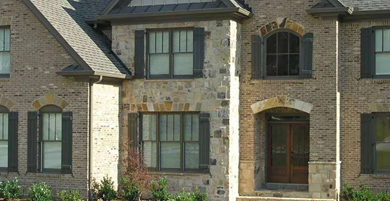Florida’s Small Businesses are Gasping for Air

 As many as 1 in 7 businesses in cities around Florida are worried they will not survive during COVID-19. So far, Coronavirus has had three negative effects on business.
As many as 1 in 7 businesses in cities around Florida are worried they will not survive during COVID-19. So far, Coronavirus has had three negative effects on business.
Firstly, the virus itself has caused workers and owners to stay home sick, even if precautionary due to having similar symptoms.
Secondly, the lockdown measures in an attempt to control the spread of the virus has meant businesses are forced to close, or to have limited amounts of customers in-store. Lastly, it has had a detrimental effect on business and consumer confidence, particularly with the stock crash in March.
The good news is that this recession is unlike the 2008 one, and most economies are expected to recover fairly quickly once lockdown ends. The issue is that no one knows how far away this is, and small businesses have cash flow concerns at the best of times.
Coronavirus’ affect on Floridian business
An estimated 60 million Americans are employed by small businesses, which is around half of the total workforce according to the Small Business Association. This gives us an idea of how many jobs are under threat once the government loans run dry, and also why small businesses are finding it harder than big business. Being responsible for employing half of America, they’re having to pay wages even when they’re not making sales due to lockdown. Those that utilise more flexible contracts will have saved money, but they can’t be sure employees will return once the business reopens.
Whilst most businesses have reopened, they are still struggling with demand. For example, restaurants are trying to enforce social distancing, which means having fewer tables than usual. Florida also relies heavily on tourism, cruise ships and so on. Currently, it’s extremely difficult to enter North American as an outsider, so tourism has been hit hard. Europeans are staying in the EU, and Americans are going to states that are laid back regarding Coronavirus, such as Texas.
A second wave and potential relief
A second wave is expected to hit Florida, although, did it ever really finish with the first wave? Whatever you want to label it, the reality is, Coronavirus isn’t only not going away and it’s expected to grow.
What people likely actually mean by a second wave is, a second wave of lockdown. This is entirely possible, though this time it may be more partial.
This would devastate businesses once again, but there are some signs of hope. Whilst the stimulus package is running dry, it looks that it may continue, particularly if there’s another lockdown. Outside of the stimulus package, there are some options for Floridian businesses.
Miami-Dade commissioner, Daniella Cava, gloffered 34 businesses grants of $2,300. Restaurants and bars also have the $5m fund from Florida’s share of the Cares Act. There have been some other private initiatives too.
If grant money is not feasible, or not enough, many businesses will be looking to bank loans. Unfortunately, this is a dead end for most, given their negative view of small businesses at the best of times, and skepticism over loaning money during turbulent times. It doesn’t help that there’s a liquidity issue, and even mortgage lenders are now asking for a 700 FICO score along with a 20% downpayment – small businesses have little hope.
Alternative forms of finance have been of great help, given their relaxed application criteria. Top Florida business lenders can be summed up as: Short term cash for most businesses, albeit being not the cheapest option. The key reason behind their rising demand is that they’re on-demand, in that they facilitate loans within a day or two. This goes hand-in-hand with a volatile economy and global pandemic, because things change fast.
Riots: a second blow
It’s not only the coronavirus and it’s respective social distancing that’s wrecked havoc, but also the June riots and looting, which has mostly affected Floridian university towns like Tampa Bay. It’s not only the material effect from the looting, but it’s had a lasting impression on customers.
The owner of Hair and All, situated next to the shopping plaza, reports that customers are worried about visiting their store. “They were scared to come here to this plaza because of the fire and what happened, but I tell him that everything is safe.”
There are many other stories like this from the same area, in which after months of being closed due to the virus, reopened to riots and were forced to close back down.
Chargeback fraud twists in the knife
Florida has one of the highest levels of fraud in America. Recently, there has been an influx of chargeback scams that have left many businesses in Tampa Bay out of pocket.
In 2018, over 1.4 Floridians lost over $84m in fraudulent activity. In 2020, it’s expected to be much higher. Experts estimate a 23% rise in chargeback fraud since lockdown began. It’s not only that scammers have more time on their hands, but where there’s panic and chaos, there’s opportunism.
“Scammers love pandemics and crisis and chaos and they will take advantage of that, so their presence went up,” claims Bush, the vice president of sales at Chargebacks911.
Moving forward with business in Florida
Floridian businesses will no doubt continue to suffer for as long as the pandemic, and respected recession, ensues. This goes for all of America, although some places (i.e. tech cities) may be more protected.
Despite government aid and alternative lenders being a helping hand, there are still evictions likely to occur, given the state moratorium on evictions skips over small businesses, claims State Representative Anna Eskamani.
Eskamani claims that her office is inquiring to the governor in the hope they will expand the protections regarding the state moratorium, so small businesses are protected, as well as the time it’s in effect.



